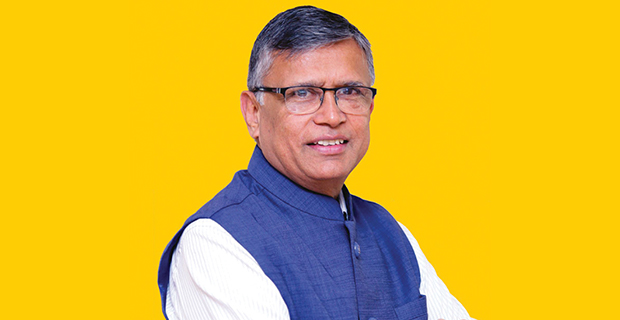Internationalization of Faculty
Former Executive Council Member, Association of Commonwealth Universities, London
The United Nations Educational, Scientific, and Cultural Organization (UNESCO) has stated that “education transforms lives.” It is indeed true that education transforms lives and in turn has a great potential to transform how the daily things are carried out across the universe. It can be considered as one ‘Pill’ for all ‘Ills’. It can act as a catalyst to achieve several SDGs with a higher degree of success. Internationalization of the higher education system is a proven methodology of great impact for centuries. Several learned experts and studies have defined internationalization of education as the process of integrating diverse global dimensions into the process of education delivery.
Internationalization should not only be thought towards bringing in more international students to the campus or to get extra dollars to help institutions financially. It should also encompass the academic and research efforts in collaboration with international bodies and individuals, bringing in international experts for teaching-learning sessions, faculty exchange, joint research activities and alike. As far as students are concerned, internationalization of higher education is currently very prevalent but not in the case of faculty. So let us delve a little deeper into the facets of the internationalization of faculty.
In general, internationalization of faculty can be thought of in the following ways for special sessions, research activities and seminars:
- Involving individuals from outside the nation into an institution
- Internal faculty members deputed to foreign universities for a defined tenure and activity
- Employing faculty members with at least one of the degrees from outside own country
- Faculty members involved in joint international research efforts through multi-country projects
Undoubtedly, internationalization of the faculty can be a game changing effort. Let us have a brief idea about why it is important.
- Academic Quality: When a faculty member is involved in internationalization efforts, their scope of knowledge becomes broad based. They come across different contexts, teaching methodologies, pedagogy, individuals with varied knowledge, and overall atmosphere. This directly or indirectly adds to the vastness of knowledge and understanding of a faculty, thus enhancing the academic utility and quality at large. Seeing different aspects, they are inspired to bring that level to their work approach and in turn inspire others around them to aim for newness and innovation.
- International Orientation: On being involved with international institutions and people, faculty members become aware of various resources used or available. When the faculty members are attached to international bodies, it creates an excitement of knowing a different world and it becomes a link for an institution over which further, deeper, bilateral or multilateral connections can be established. Initially having a few faculty members engage with an international body of interest can help in developing mutual trust and later these can be scaled up for most others.
- Diversity and Employability: Exposure attained by way of internationalization can help them learn more about the diversity and related practices eventually helping them move from one country to another country. It can have huge potential for better employability with higher reward and improved or matching job profiles. Also helps learning about acceptance of each other thereby improving overall peace, tolerance and harmony.
- Self-Actualization: Internationalization can lead to self-actualization. When faculty members expand their personal avenues of learning by being a part of the internationalization efforts, they get to know newer dimensions of languages, culture, teaching methodologies, academic settings and potential of students with different levels of understanding. This directly enhances their quotient of self-satisfaction and ultimately their performance.
When faculty members enter a vast arena of internationalization, they feel more responsible and a sense of personal commitment to improving themselves and their institution at large. This desire helps in bringing new dynamism to an institution. Looking at the major advantages, one might feel like getting involved in the process of internationalization without a second thought. However, like anything else, it also comes with several challenges which are outlined below.
- Lack of funding or financial support
- Inadequate knowledge regarding international schemes
- Opportunity provided to selective few members
- Non-transparent policies and priorities
- Fear of missing promotional and other local opportunities
- Lack of understanding culture and living expenses
- Moving to an entirely new setting with family
- Professional benefits not adequately defined or understood
- Most of opportunities based on personal contacts and references
- Non-implementation of related schemes by employers due to potential of losing a faculty
However, understanding the need of internationalization, some of the following recommendations at institute level can help enhance overall efforts and outcomes for faculty members.
- Disseminate information on avenues for internationalization
- Clarify the policies and practices supporting the internationalization
- Enlist the benefits and liberally promote the ideas of internationalization
- Identify the funding sources to mitigate the costs for such activities
- Expand institutional partnerships via mutual agreements, conferences and joint research projects
- Provide adequate recognition for such efforts while assessing annual performances
NAFSA, an association of international educators suggests that it is important for higher authorities and decision-makers to promote faculty commitment to and engagement in the efforts towards internationalization. An initial step towards this can be conducting surveys that can help the institutions to know about the thoughts and recommendations of faculty members regarding internationalization. This will help them promote their interests, use autonomy to grow further in the profession and bring diversity and innovation in their teaching-learning and researching activities.
— Dr Sandeep Sancheti is Vice President
(Research Relations and Academic Ambassador), Elsevier India and former President, Association of Indian Universities, New Delhi











Comments.